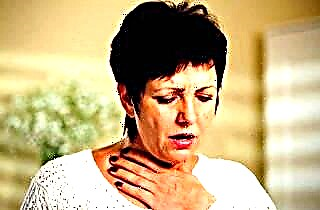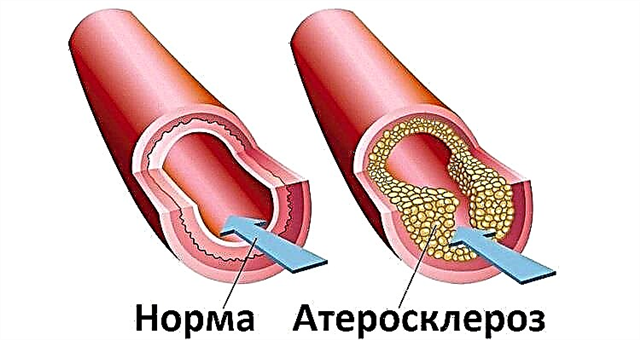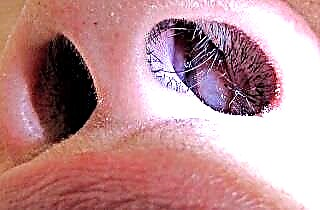Many people know that bronchospasm is a sign of the presence of harmful substances in the body and a way to get rid of them through the respiratory tract. But what to do if it is difficult to breathe in and out, there is a feeling of lack of air? Such a suffocating cough in an adult and a child may indicate not only a problem with the upper respiratory tract, but also other disorders in the functioning of the body. Consider what to prepare for and how you can relieve your symptoms.
What is the cause of the disease
 These are the possible factors that led to the appearance of a cough with attacks of suffocation. Perhaps the first to be called smoking by many, since this symptom often develops in heavy smokers. Due to the penetration of caustic resins into the respiratory tract, irritation of the mucous membrane of the larynx and bronchi occurs, and if the attacks are repeated in the morning, we can talk about the development of bronchitis. This disease does not disappear on its own, and a prolonged inflammatory process leads to tuberculosis.
These are the possible factors that led to the appearance of a cough with attacks of suffocation. Perhaps the first to be called smoking by many, since this symptom often develops in heavy smokers. Due to the penetration of caustic resins into the respiratory tract, irritation of the mucous membrane of the larynx and bronchi occurs, and if the attacks are repeated in the morning, we can talk about the development of bronchitis. This disease does not disappear on its own, and a prolonged inflammatory process leads to tuberculosis.
However, the reasons for this combination of symptoms can be hidden in a number of diseases. So, a suffocating cough appears when:
- an infectious or allergic form of asthma;
- bronchitis;
- tracheitis;
- laryngitis;
- pulmonary edema;
- tumors (benign / malignant) of the respiratory tract;
- heart failure;
- hypertension;
- emotional stress.
The same reasons provoke the onset of cough with signs of suffocation in children. In addition, the child may choke from coughing due to rickets, an acute shortage of calcium salts in the body, or as a result of postpartum trauma.
A choking cough can appear at any time, but usually the attacks are bothersome at night. Such bronchospasm either begins with snoring or occurs abruptly. It is provoked by allergens, harmful substances in the air, a pungent odor, as well as cold air, colds. Other symptoms may be present depending on the underlying disorder. So, if bronchial asthma develops, then the following are observed:
 coughing;
coughing;- severe shortness of breath;
- chest pain;
- sputum in small amounts.
By the way, it is this disease that is revealed during the examination of a person who complains: "I am tortured by a strong cough and I am just choking."
A dry, suffocating cough with little sputum production often indicates laryngitis, which develops as a result of influenza, ARVI, scarlet fever, whooping cough. With him, the patient suffers from:
- tingling sensation in the throat;
- sudden loss of voice;
- swelling of the vocal cords.
This disease is also characterized by an increase in temperature. It is possible to get rid of fever and bronchospasm only after taking anti-inflammatory and antipyretic drugs.
Note that pain and sore throat, turning into a choking cough, can sometimes be an adverse reaction to certain medications.
The most frightening thing is when a person suddenly starts coughing and gasping for breath. You should be aware that this sometimes happens due to the development of one of the types of asthma, cardiovascular problems. These symptoms can be a manifestation of an allergic reaction. Sudden bronchospasm often becomes a consequence of severe nervous shock, excessive physical exertion and even overeating. The occurrence of a spasm in the throat, heavy breathing with unpleasant whistling sounds may indicate a malfunction of the thyroid gland, as well as a pathology of the heart and larynx. Confirmation or refutation of assumptions about any of these diseases is possible only as a result of examination in a medical institution.
Before treatment - diagnosis
 Seeing a doctor and passing an examination is necessary not only in order to relieve unpleasant symptoms on the basis of their results. If the correct therapy is not prescribed in a timely manner, complications are possible. So, with a suffocating cough, air is retained in the lungs, and this entails a change in the rhythm of breathing. Further, a chain of pathologies arises: a lack of oxygen leads to an increase in the level of carbon dioxide in the blood, as a result, the brain is not able to function fully, and the person loses consciousness. In this case, complications can affect various organs and systems.
Seeing a doctor and passing an examination is necessary not only in order to relieve unpleasant symptoms on the basis of their results. If the correct therapy is not prescribed in a timely manner, complications are possible. So, with a suffocating cough, air is retained in the lungs, and this entails a change in the rhythm of breathing. Further, a chain of pathologies arises: a lack of oxygen leads to an increase in the level of carbon dioxide in the blood, as a result, the brain is not able to function fully, and the person loses consciousness. In this case, complications can affect various organs and systems.
To prevent such phenomena, laboratory and instrumental diagnostics are needed. It is possible to establish why the cough is choking after the tests of blood, sputum, feces, and allergy tests are taken. To get a more complete picture of the changes and make an accurate diagnosis, the doctor gives a referral for X-ray, fluorography, tomography, bronchoscopy or electrocardiogram.
Differential diagnosis makes it possible to get answers to all possible questions, to establish the true cause of the onset of seizures. When making a diagnosis, symptoms (cough, shortness of breath, asthma attacks) characteristic of various diseases are taken into account.
The doctor pays attention to how strong, frequent, prolonged, painful cough is, which leads to its intensification. Based on all the data, treatment is prescribed.
Reducing and relieving symptoms
Depending on what disease provoked the cough and suffocation, the doctor may prescribe drugs that will relieve inflammation, have an antiseptic, enveloping effect. To reduce inflammation and prevent suffocation from developing, drugs from the group of glucocorticosteroid hormones are used. The most popular are "Benacort", "Pulmicort", "Aldecin", "Eco Light Breathing".
Vitamins are also needed to strengthen the immune system and relieve symptoms. So, it has been established that it is the lack of ascorbic acid that leads to the appearance of suffocation, and to prevent this from happening, people with bronchial asthma, heart and vascular diseases, allergies should take this vitamin 1-4 g daily.
The diet should contain foods in which it is contained in large quantities. Therefore, it is better to replenish the menu with citrus fruits of various types, strawberries and currants, rose hips, red and green peppers, cabbage.
 Vitamin B6 helps to reduce the risk of bronchospasm; to relieve shortness of breath, it is enough to introduce it in an amount of 50 mg during the day. Replenish the supply of vitamin B6 with nuts, beans, chicken, fish of any kind, pomegranate. Vitamin B12 is also prescribed, but not more than 1 mg per week and only under medical supervision. This vitamin can enter our body with meat, chicken eggs, sour cream, liver, fish, hard cheese. To prevent seizures, vitamin E is also recommended, which is contained in beef liver, chicken eggs, and cereal grains. In addition, Omegas 3 and 9, as well as magnesium and selenium, help reduce inflammation.
Vitamin B6 helps to reduce the risk of bronchospasm; to relieve shortness of breath, it is enough to introduce it in an amount of 50 mg during the day. Replenish the supply of vitamin B6 with nuts, beans, chicken, fish of any kind, pomegranate. Vitamin B12 is also prescribed, but not more than 1 mg per week and only under medical supervision. This vitamin can enter our body with meat, chicken eggs, sour cream, liver, fish, hard cheese. To prevent seizures, vitamin E is also recommended, which is contained in beef liver, chicken eggs, and cereal grains. In addition, Omegas 3 and 9, as well as magnesium and selenium, help reduce inflammation.
In order not to provoke bronchospasm, you should limit the consumption of foods high in oxalic acid (spinach, rhubarb, beets, coffee, green tea), Omega 6 (vegetable oil). These foods can provoke cramps and increase inflammation.
Physiotherapy is recommended for many respiratory diseases. You can recover faster with the help of electrophoresis, ultrasound, phonophoresis, magnetotherapy.
Good results are also obtained by speleotherapy - air treatment of salt mines, where there are a lot of calcium, sodium, and magnesium salts. Acupuncture, massage, swimming, exercise therapy are useful.
What you can do yourself
 Warm foot baths help relieve the attack. For the procedure, you will need water at 45 ° C and mustard (2 tablespoons). In such a bath, the legs should be up to 15 minutes.During a severe attack, traditional medicine recommends using only hot water (no additives), keeping both legs and hands in it.
Warm foot baths help relieve the attack. For the procedure, you will need water at 45 ° C and mustard (2 tablespoons). In such a bath, the legs should be up to 15 minutes.During a severe attack, traditional medicine recommends using only hot water (no additives), keeping both legs and hands in it.
Traditional healers widely use decoctions and tinctures based on medicinal herbs. For example, peppermint is rich in menthol, so it supports the respiratory system, especially during choking. The root of elecampane contains a large amount of substances necessary to improve the patency of the bronchi, the separation and excretion of sputum. These plants can be used to make tea.
For the purpose of prevention, it is recommended to often ventilate the room and do wet cleaning, as well as try to get rid of objects containing dust and allergens.
More time should be spent outdoors. It is best to do this even before a slight sore throat leads to serious illness. In any case, with the right treatment and the implementation of medical recommendations, the prognosis is always positive.

 coughing;
coughing;

